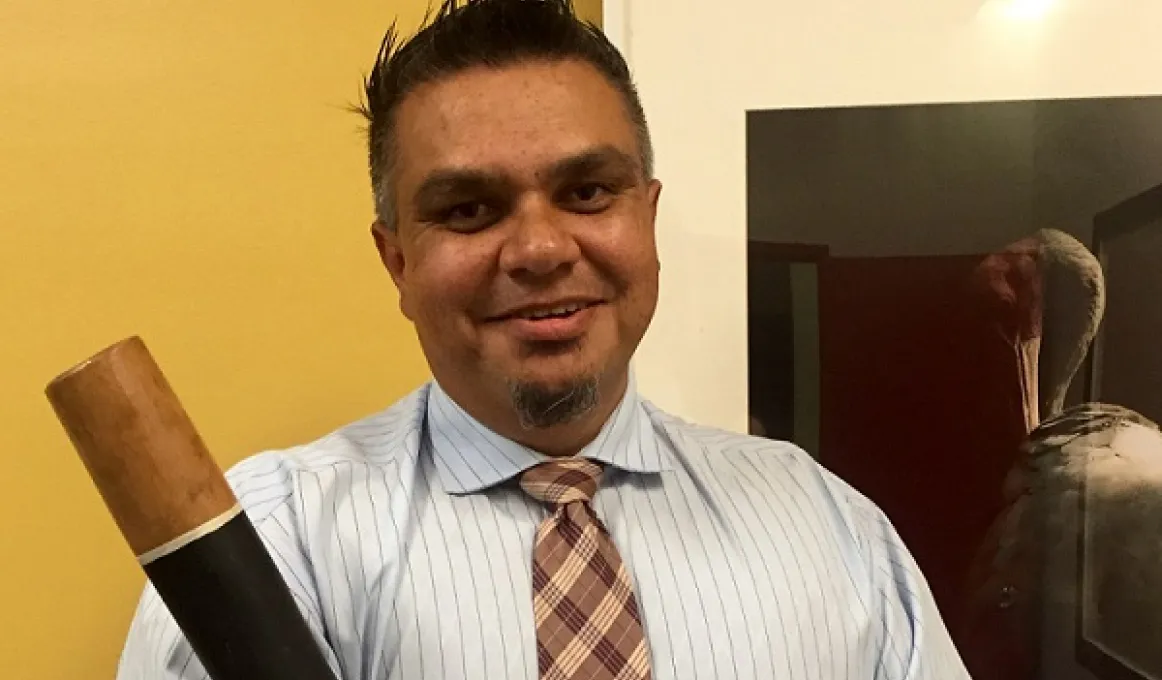Placing Indigenous job seekers on a career path

When you create a dynamic and successful business from scratch, employing over 30 Indigenous staff and 80 electrical contractors in 15 offices around Australia, you might think it was time to retire and enjoy the fruits of your hard work.
When you create a dynamic and successful business from scratch, employing over 30 Indigenous staff and 80 electrical contractors in 15 offices around Australia, you might think it was time to retire and enjoy the fruits of your hard work.
Not Lanny Edey! After selling his Indigenous electrical company Murri Power to one of his first employees, Lanny wanted to use his business knowledge and understanding of the employer employee relationship to place Indigenous job seekers on the path to fulfilling employment.
As the leader of a dedicated Indigenous team at the new Aboriginal Employment Service office in Brisbane, Lanny believes that Indigenous agencies are best placed to not only find jobs but to offer the cultural support necessary to enable people to thrive in their new careers.
“I want to see some of our young ones say yes to an opportunity and run with it because someone gave me a go and I want to do the same thing for our mob,” Lanny said.
When it comes to culture however, Lanny said it is a two-way street which is why the Aboriginal Employment Service works with employers to ensure they understand cultural issues surrounding hiring new Indigenous employees and assessing existing employees.
“We’ve had employers say to us that our applicants didn’t look at them during interviews and we’ve had to explain to them that in our culture looking someone in the eyes is a sign of disrespect. It doesn’t mean that the interviewee is shy or not confident, but rather that they respect them a lot.”
Indigenous employment is a niche market which Lanny says the Aboriginal Employment Service is well placed to serve and understand, especially when it comes to job longevity.
“How we break the cycle of unemployment in the Indigenous community is to make sure that every person we put forward is job ready,” Lanny said.
“They need to be committed and I’m not afraid to tell people ‘at this very important time we can’t help you’, but to also let them know there is always a way.”
Depending on the need, the Aboriginal Employment Service can connect the job seeker with the appropriate support provider to better prepare them.
“Being an Indigenous organisation we can sense that sort of thing and then by the time they’ve done that work, we can refresh, rewind and say ‘right, now you are ready’.
Find out more
Getting adults into work and making sure everyone has the opportunity to own their own home, run their own business, and provide for themselves and their families will mean a strong future for Aboriginal and Torres Strait Islander people.
The Aboriginal Employment Service receives funding from the Australian Government for two of its programmes. Recruitment Services is funded through the government's Indigenous Advancement Strategy while the Career Preparation Program (traineeships) is funded through the government’s Indigenous Youth Careers Pathways programme.
The Aboriginal Employment Service has 10 regional offices around Australia and finds employment for between 1000 and 1500 Indigenous job seekers each year. Visit the Aboriginal Employment Service website for more information about its programmes and services.